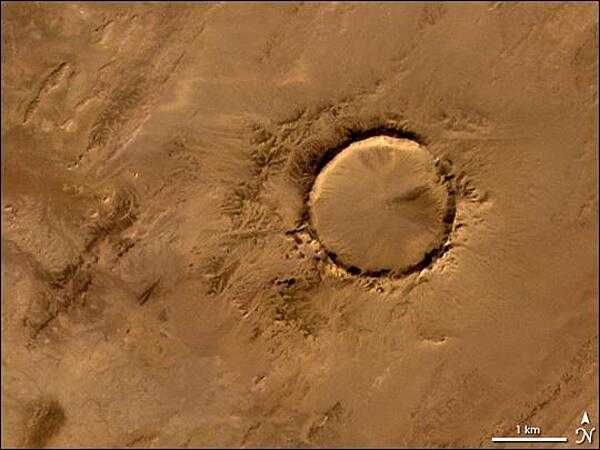Mauritania - MR - MRT - MTN - Africa
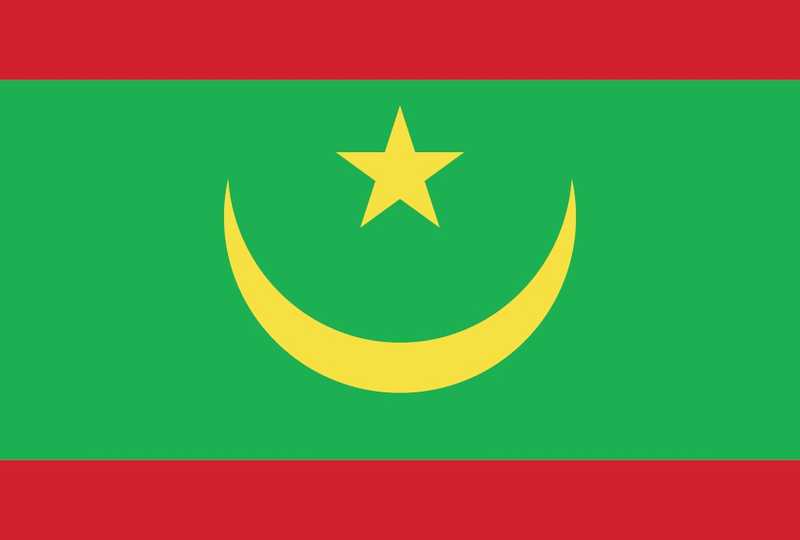
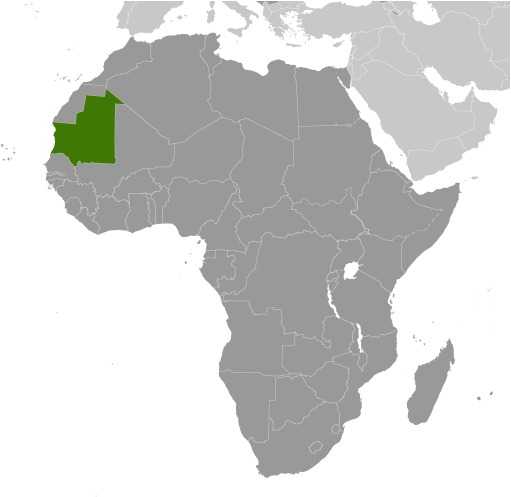
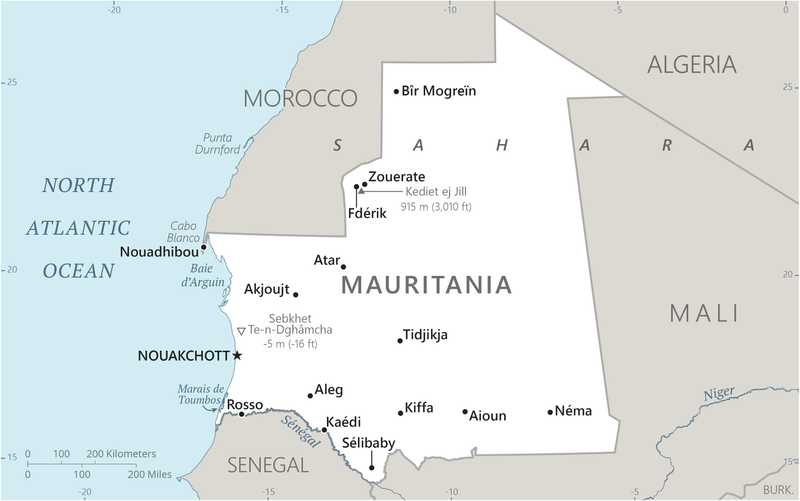
Mauritania Images
Mauritania Factbook Data
Diplomatic representation from the US
embassy: Nouadhibou Road, Avenue Al Quds, NOT PRTZ, Nouakchott
mailing address: 2430 Nouakchott Place, Washington DC 20521-2430
telephone: [222] 4525-2660
FAX: [222] 4525-1592
email address and website:
consularnkc@state.gov
https://mr.usembassy.gov/
Age structure
15-64 years: 59.9% (male 1,227,347/female 1,363,938)
65 years and over: 4.4% (2024 est.) (male 80,308/female 110,280)
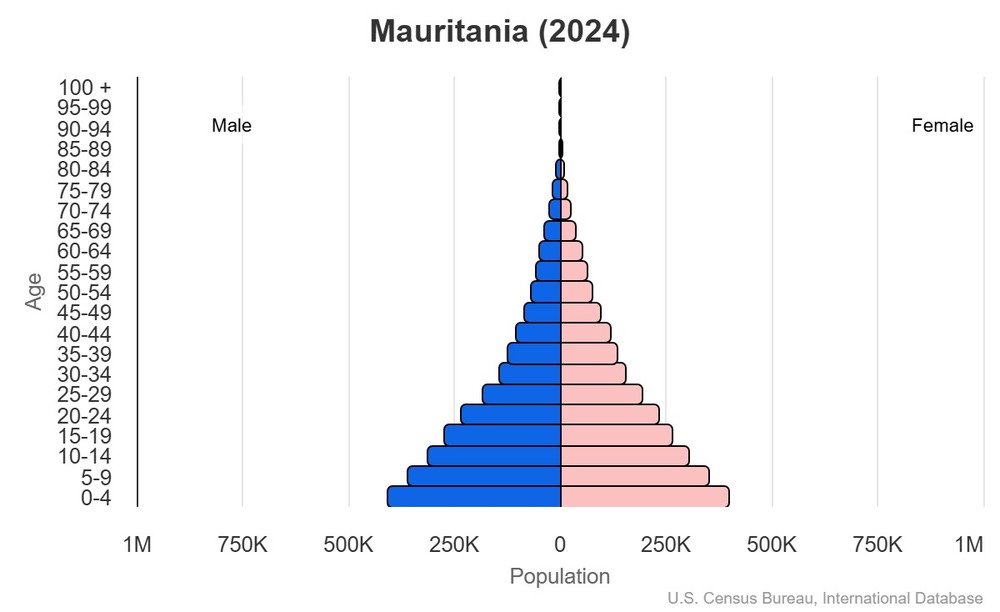
For additional information, please see the entry for Population pyramid on the Definitions and Notes page.
Geographic coordinates
Sex ratio
0-14 years: 1.01 male(s)/female
15-64 years: 0.9 male(s)/female
65 years and over: 0.73 male(s)/female
total population: 0.93 male(s)/female (2024 est.)
Natural hazards
Area - comparative
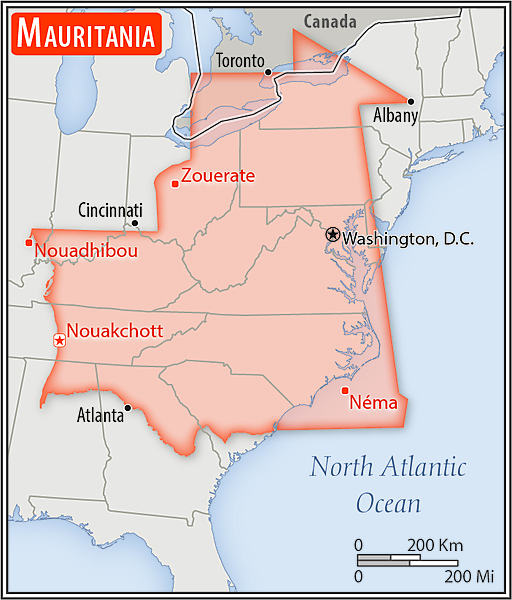
slightly larger than three times the size of New Mexico; about six times the size of Florida
Military service age and obligation
Background
The Amazigh and Bafour people were among the earliest settlers in what is now Mauritania and among the first in recorded history to convert from a nomadic to agricultural lifestyle. These groups account for roughly one third of Mauritania’s ethnic makeup. The remainder of Mauritania’s ethnic groups derive from Sub-Saharan ethnic groups originating mainly from the Senegal River Valley, including descendants of former enslaved peoples. These three groups are organized according to a strict caste system with deep ethnic divides that impact access to resources and power dynamics.
A former French colony, Mauritania achieved independence from France in 1960. Mauritania initially began as a single-party, authoritarian regime and experienced 49 years of dictatorships, flawed elections, failed attempts at democracy, and military coups. Ould Abdel AZIZ led the last coup in 2008, was elected president in 2009, and was reelected in 2014. Mohamed Ould Cheikh GHAZOUANI was elected president in 2019, and his inauguration marked the first peaceful transition of power from one democratically elected president to another, solidifying the country's status as an emerging democracy. International observers recognized the elections as relatively free and fair. GHAZOUANI is seeking re-election in June 2024 for a second, and final, five-year term.
The country is working to address vestigial practices of slavery and its hereditary impacts. Mauritania officially abolished slavery in 1981, but the practice was not criminalized until 2007. Between 2005 and 2011, Al-Qaeda in the Islamic Maghreb (AQIM) launched a series of attacks killing western tourists and aid workers, attacking diplomatic and government facilities, and ambushing Mauritanian soldiers and gendarmes. Although Mauritania has not seen an attack since 2011, AQIM and similar groups remain active in the Sahel region.
Environmental issues
International environmental agreements
signed, but not ratified: none of the selected agreements
Military expenditures
2.5% of GDP (2023 est.)
2.5% of GDP (2022 est.)
2.4% of GDP (2021 est.)
2.5% of GDP (2020 est.)
Population below poverty line
note: % of population with income below national poverty line
Household income or consumption by percentage share
highest 10%: 24.6% (2019 est.)
note: % share of income accruing to lowest and highest 10% of population
Exports - commodities
note: top five export commodities based on value in dollars
Exports - partners
note: top five export partners based on percentage share of exports
Administrative divisions
Agricultural products
note: top ten agricultural products based on tonnage
Military and security forces
Ministry of Interior and Decentralization: National Police, National Guard (2025)
note 1: the National Police are responsible for enforcing the law and maintaining order in urban areas, while the paramilitary Gendarmerie is responsible for maintaining civil order around metropolitan areas and providing law enforcement services in rural areas; like the Mauritanian Armed Forces, the Gendarmerie is under the Ministry of Defense, but also supports the ministries of Interior and Justice
note 2: the National Guard performs a limited police function in keeping with its peacetime role of providing security at government facilities, to include prisons; regional authorities may call upon the National Guard to restore civil order during riots and other large-scale disturbances; the National Guard includes the nomadic Camel Corps or Nomad Group, also known as the Méhariste
Budget
expenditures: $1.407 billion (2019 est.)
Capital
geographic coordinates: 18 04 N, 15 58 W
time difference: UTC 0 (5 hours ahead of Washington, DC, during Standard Time)
etymology: the meaning of the name is unclear; it may derive from the Berber nawakshut, meaning "place of the winds;" other variants could translate as "the place where water appears in a new well," "the land where shells abound," "a place with pasture," "a windy place," or "without ears" (the last referring to a local chieftain who could have been the place's namesake)
Imports - commodities
note: top five import commodities based on value in dollars
Climate
Coastline
Constitution
amendment process: proposed by the president of the republic or by Parliament; consideration of amendments by Parliament requires approval of at least one third of the membership; a referendum is held only if the amendment is approved by two-thirds majority vote; passage by referendum requires simple majority vote by eligible voters; passage of amendments proposed by the president can bypass a referendum if approved by at least three-fifths majority vote by Parliament
Exchange rates
Exchange rates:
36.489 (2023 est.)
36.935 (2022 est.)
36.063 (2021 est.)
37.189 (2020 est.)
36.691 (2019 est.)
Executive branch
head of government: Prime Minister Moctar Ould DIAY (since 2 August 2024)
cabinet: Council of Ministers nominees suggested by the prime minister, appointed by the president
election/appointment process: president directly elected by absolute-majority popular vote in 2 rounds, if needed, for a 5-year term (eligible for a second term); prime minister appointed by the president
most recent election date: 29 June 2024
election results:
2024: Mohamed Ould Cheikh el GHAZOUANI reelected president in first round; percent of vote - Mohamed Ould Cheikh el GHAZOUANI (UPR) 56.1%, Biram Dah Ould ABEID (independent) 22.1%, Hamadi Sidi el MOKHTAR independent) 12.8%, other 9.0%
2019: Mohamed Ould Cheikh el GHAZOUANI elected president in first round; percent of vote - Mohamed Ould Cheikh el GHAZOUANI (UPR) 52%, Biram Dah Ould ABEID (independent) 18.6%, Sidi Mohamed Ould BOUBACAR (independent) 17.9%, other 11.5%
expected date of next election: June 2029
Flag
meaning: the crescent, star, and color green are traditional symbols of Islam; green also represents hope for a bright future; yellow stands for the sands of the Sahara, and red for blood shed in the fight for independence
Independence
Industries
note: gypsum deposits have never been exploited
Judicial branch
judge selection and term of office: Supreme Court president appointed by the president of the republic to serve a 5-year renewable term; Constitutional Council members appointed - 3 by the president of the republic, 2 by the president of the National Assembly, 1 by the prime minister, 1 by the leader of the democratic opposition, 1 by the largest opposition party in the National Assembly, and 1 by the second largest party in the National Assembly; members serve single, 9-year terms with one-third of membership renewed every 3 years; High Court of Justice members appointed by Parliament - 6 by the ruling Coalition of Majority Parties and 3 by opposition parties
subordinate courts: Courts of Appeal; courts of first instance, or wilya courts, are established in the regions' headquarters and include commercial and labor courts, criminal courts, Moughataa (district) Courts, and informal/customary courts
Land boundaries
border countries (4): Algeria 460 km; Mali 2,236 km; Morocco 1,564 km; Senegal 742 km
Land use
arable land: 0.4% (2023 est.)
permanent crops: 0% (2023 est.)
permanent pasture: 38.1% (2023 est.)
forest: 1% (2023 est.)
other: 60.5% (2023 est.)
Legal system
Legislative branch
legislative structure: unicameral
chamber name: National Assembly (Al Jamiya-Al-Wataniya)
number of seats: 176 (all directly elected)
electoral system: mixed system
scope of elections: full renewal
term in office: 5 years
most recent election date: 5/13/2023 to 5/27/2023
percentage of women in chamber: 23.3%
expected date of next election: May 2028
note: the early parliamentary elections in 2023 were the first to be held under President Mohamed Ould Cheikh El GHAZOUANI, elected in 2019 in the first peaceful transition of power; the elections followed the agreement between the government and parties in September 2022 to renew the Independent National Electoral Commission (CENI) and hold the elections in the first semester of 2023 for climatic and logistical reasons
Literacy
male: 70.1% (2020 est.)
female: 51.8% (2020 est.)
Maritime claims
contiguous zone: 24 nm
exclusive economic zone: 200 nm
continental shelf: 200 nm or to the edge of the continental margin
International organization participation
National holiday
Nationality
adjective: Mauritanian
Natural resources
Geography - note
Economic overview
Political parties
El Insaf or Equity Party
El Islah or Reform Party
El Karama or Dignity Party
El Vadila or Virtue Party
Mauritanian Party of Union and Change or HATEM
National Democratic Alliance or AND
National Rally for Reform and Development or RNRD or TAWASSOUL
Nida El-Watan
Party for Conciliation and Prosperity or HIWAR
Party of the Mauritanian Masses or Hakam
Republican Front for Unity and Democracy or FRUD
Sawab Party
Union for Democracy and Progress or UDP
Union of Planning and Construction or UPC
Railways
standard gauge: 728 km (2014) 1.435-m gauge
Suffrage
Terrain
Government type
Country name
conventional short form: Mauritania
local long form: Al Jumhuriyah al Islamiyah al Muritaniyah
local short form: Muritaniyah
etymology: named for the ancient kingdom of Mauretania (3rd century B.C. to 1st century A.D.); its name derives from the Mauri (Moors) of northwest Africa
Location
Map references
Irrigated land
Diplomatic representation in the US
chancery: 2129 Leroy Place NW, Washington, DC 20008
telephone: [1] (202) 232-5700
FAX: [1] (202) 319-2623
email address and website:
ambarimwashington@diplomatie.gov.mr
mauritaniaembassyus.org – Mauritania Embassy washington
Internet users
Internet country code
Refugees and internally displaced persons
GDP (official exchange rate)
note: data in current dollars at official exchange rate
Total renewable water resources
School life expectancy (primary to tertiary education)
male: 8 years (2020 est.)
female: 8 years (2020 est.)
Urbanization
rate of urbanization: 3.84% annual rate of change (2020-25 est.)
Broadcast media
Drinking water source
urban: 94.6% of population (2022 est.)
rural: 55.6% of population (2022 est.)
total: 77.8% of population (2022 est.)
unimproved:
urban: 5.4% of population (2022 est.)
rural: 44.4% of population (2022 est.)
total: 22.2% of population (2022 est.)
National anthem(s)
lyrics/music: unknown/Rageh DAOUD
history: adopted 2017
Major urban areas - population
International law organization participation
Physician density
National symbol(s)
GDP - composition, by end use
government consumption: 17.2% (2023 est.)
investment in fixed capital: 23.5% (2023 est.)
investment in inventories: 18.9% (2023 est.)
exports of goods and services: 38.3% (2023 est.)
imports of goods and services: -53.2% (2023 est.)
note: figures may not total 100% due to rounding or gaps in data collection
Dependency ratios
youth dependency ratio: 78.5 (2024 est.)
elderly dependency ratio: 6.9 (2024 est.)
potential support ratio: 14.5 (2024 est.)
Citizenship
citizenship by descent only: at least one parent must be a citizen of Mauritania
dual citizenship recognized: no
residency requirement for naturalization: 5 years
Population distribution
Electricity access
electrification - urban areas: 91.6%
Civil aircraft registration country code prefix
Sanitation facility access
urban: 89.4% of population (2022 est.)
rural: 33.9% of population (2022 est.)
total: 65.5% of population (2022 est.)
unimproved:
urban: 10.6% of population (2022 est.)
rural: 66.1% of population (2022 est.)
total: 34.5% of population (2022 est.)
Ethnic groups
Religions
Languages
major-language sample(s):
كتاب حقائق العالم، المصدر الذي لا يمكن الاستغناء عنه للمعلومات الأساسية (Arabic)
The World Factbook, the indispensable source for basic information.
note: the spoken Arabic in Mauritania differs considerably from Modern Standard Arabic; the Mauritanian dialect, which incorporates many Tamazight words, is referred to as Hassaniya
Imports - partners
note: top five import partners based on percentage share of imports
Elevation
lowest point: Sebkhet Te-n-Dghamcha -5 m
mean elevation: 276 m
Health expenditure
6.3% of national budget (2022 est.)
Military - note
Military and security service personnel strengths
Military deployments
Terrorist group(s)
Total water withdrawal
industrial: 31.8 million cubic meters (2022 est.)
agricultural: 1.223 billion cubic meters (2022 est.)
Waste and recycling
percent of municipal solid waste recycled: 10% (2022 est.)
Major aquifers
Major watersheds (area sq km)
Major rivers (by length in km)
note: [s] after country name indicates river source; [m] after country name indicates river mouth
National heritage
selected World Heritage Site locales: Ancient Ksour (Fortified Villages) of Ouadane, Chinguetti, Tichitt, and Oualata (c); Banc d'Arguin National Park (n)
Mother's mean age at first birth
note: data represents median age at first birth among women 25-49
Coal
Electricity generation sources
solar: 8.5% of total installed capacity (2023 est.)
wind: 6.3% of total installed capacity (2023 est.)
hydroelectricity: 12.8% of total installed capacity (2023 est.)
Natural gas
Petroleum
crude oil estimated reserves: 20 million barrels (2021 est.)
Currently married women (ages 15-49)
Remittances
1.1% of GDP (2022 est.)
0.1% of GDP (2021 est.)
note: personal transfers and compensation between resident and non-resident individuals/households/entities
Child marriage
women married by age 18: 36.6% (2021)
men married by age 18: 1.2% (2021)
Ports
large: 0
medium: 1
small: 1
very small: 0
ports with oil terminals: 2
key ports: Nouadhibou, Nouakchott
National color(s)
Particulate matter emissions
Labor force
note: number of people ages 15 or older who are employed or seeking work
Youth unemployment rate (ages 15-24)
male: 19.9% (2024 est.)
female: 30.1% (2024 est.)
note: % of labor force ages 15-24 seeking employment
Debt - external
note: present value of external debt in current US dollars
Maternal mortality ratio
Reserves of foreign exchange and gold
$1.493 billion (2020 est.)
$1.029 billion (2019 est.)
note: holdings of gold (year-end prices)/foreign exchange/special drawing rights in current dollars
Unemployment rate
10.5% (2023 est.)
10.6% (2022 est.)
note: % of labor force seeking employment
Population
male: 2,083,690
female: 2,244,350
Carbon dioxide emissions
from petroleum and other liquids: 4.86 million metric tonnes of CO2 (2023 est.)
Area
land: 1,030,700 sq km
water: 0 sq km
Real GDP (purchasing power parity)
$31.434 billion (2023 est.)
$29.514 billion (2022 est.)
note: data in 2021 dollars
Airports
Gini Index coefficient - distribution of family income
note: index (0-100) of income distribution; higher values represent greater inequality
Inflation rate (consumer prices)
5% (2023 est.)
9.5% (2022 est.)
note: annual % change based on consumer prices
Current account balance
-$1.424 billion (2022 est.)
-$807.862 million (2021 est.)
note: balance of payments - net trade and primary/secondary income in current dollars
Real GDP per capita
$6,300 (2023 est.)
$6,100 (2022 est.)
note: data in 2021 dollars
Broadband - fixed subscriptions
subscriptions per 100 inhabitants: (2022 est.) less than 1
Tobacco use
male: 15.5% (2025 est.)
female: 1.7% (2025 est.)
Obesity - adult prevalence rate
Energy consumption per capita
Electricity
consumption: 1.7 billion kWh (2023 est.)
imports: 378 million kWh (2023 est.)
transmission/distribution losses: 320 million kWh (2023 est.)
Merchant marine
by type: general cargo 2, other 9
Children under the age of 5 years underweight
Imports
$5.77 billion (2022 est.)
$4.312 billion (2021 est.)
note: balance of payments - imports of goods and services in current dollars
Exports
$4.132 billion (2022 est.)
$3.18 billion (2021 est.)
note: balance of payments - exports of goods and services in current dollars
Heliports
Telephones - fixed lines
subscriptions per 100 inhabitants: 1 (2022 est.)
Alcohol consumption per capita
beer: 0 liters of pure alcohol (2019 est.)
wine: 0 liters of pure alcohol (2019 est.)
spirits: 0 liters of pure alcohol (2019 est.)
other alcohols: 0 liters of pure alcohol (2019 est.)
Life expectancy at birth
male: 63.4 years
female: 68.5 years
Real GDP growth rate
6.5% (2023 est.)
6.8% (2022 est.)
note: annual GDP % growth based on constant local currency
Industrial production growth rate
note: annual % change in industrial value added based on constant local currency
GDP - composition, by sector of origin
industry: 30.6% (2024 est.)
services: 43.2% (2024 est.)
note: figures may not total 100% due to non-allocated consumption not captured in sector-reported data
Education expenditure
32% national budget (2024 est.)
Military equipment inventories and acquisitions
Gross reproduction rate
Net migration rate
Median age
male: 21.1 years
female: 23.1 years
Total fertility rate
Infant mortality rate
male: 54.8 deaths/1,000 live births
female: 42.9 deaths/1,000 live births
Telephones - mobile cellular
subscriptions per 100 inhabitants: 113 (2022 est.)
